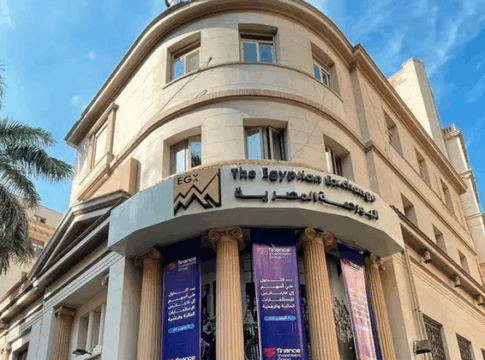The Egyptian Exchange (EGX) wrapped up the week with a mixed performance, as the benchmark EGX30 index rose 0.62%, closing at 32,696.79 points, bolstered by strength in select blue-chip stocks. This modest uptick was driven largely by renewed foreign investor interest, who injected over EGP 4.1 billion into the market, even as Egyptian and Arab investors offloaded shares.
The EGX70 EWI, tracking small and mid-cap companies, climbed 0.37% to 9,506.6 points, while the broader EGX100 index inched up 0.28% to close at 12,950.72 points. In contrast, the EGX33 Shariah-compliant index dipped 0.24%, ending at 3,334.2 points, signaling some caution in religiously aligned investment portfolios.
The week’s market capitalization stood at approximately EGP 2.29 trillion, underscoring growing investor confidence despite ongoing global volatility and regional uncertainties. Analysts suggest this reflects Egypt’s improving economic fundamentals and appetite for growth-oriented sectors such as construction, food production, and industrials.
“The market’s upward bias, especially in the EGX30, is a strong signal of foreign institutions seeing long-term value in Egypt’s blue-chip segment,” said Maged Ezzat, senior equity strategist at Beltone Financial. “However, the disparity with local and Arab selling may indicate caution due to currency concerns or liquidity rebalancing.”
Among the top gainers, Misr Beni Suef Cement surged 19.91%, closing at EGP 110.93 per share, followed by Cairo Poultry, which advanced 10.30% to EGP 23.88, and Arabian Cement Company, up 9.39% to EGP 29.00. These gains reflect renewed investor confidence in Egypt’s construction and agribusiness sectors, key pillars of Egypt’s Vision 2030 industrial growth plans.
On the downside, Northern Upper Egypt Development and Agricultural Production fell 5.97%, closing at EGP 3.31, while October Pharma slipped 5.71% to EGP 123.51, and Egyptian Real Estate Group dropped 5.13% to EGP 1.11 per share. Sector experts cite earnings volatility and profit-taking as key drivers behind these corrections.
Despite the weekly mixed signals, market observers note the continued presence of foreign capital could serve as a catalyst for broader rally potential, especially with anticipated IPOs, government privatization efforts, and an improving tourism and energy export outlook.
With Egypt’s macroeconomic indicators stabilizing and inflation slowing, fund managers and institutional players may continue rotating into high-growth stocks, particularly in cement, poultry, and export-led manufacturing. The EGX remains an attractive frontier market, especially amid geopolitical shifts drawing capital toward more diversified economies.


